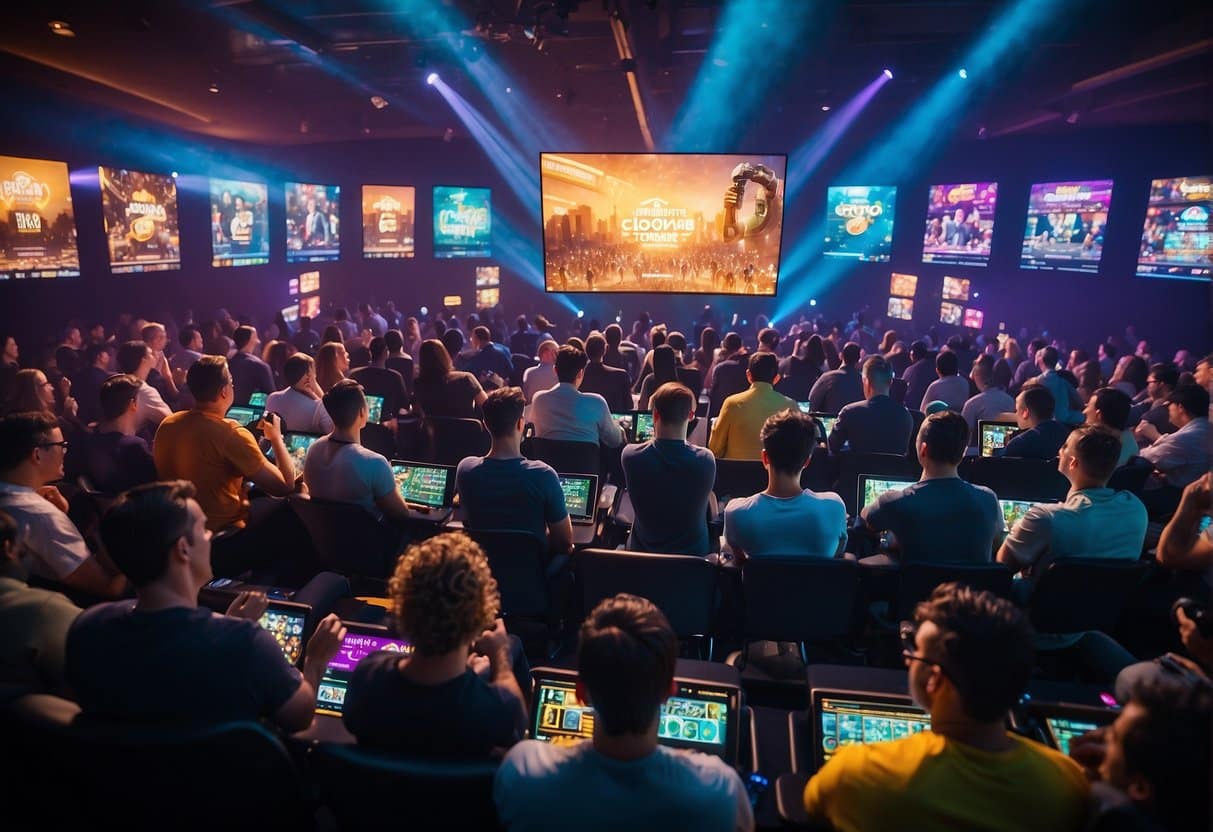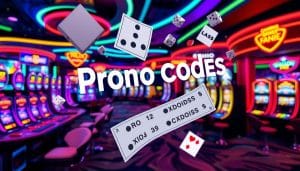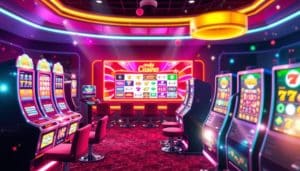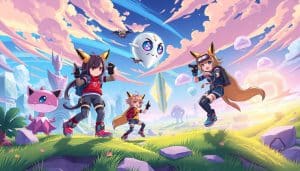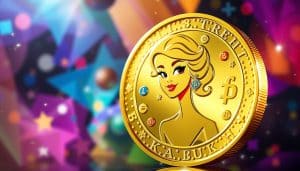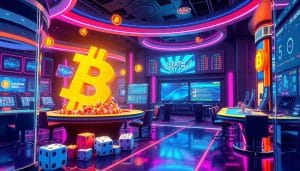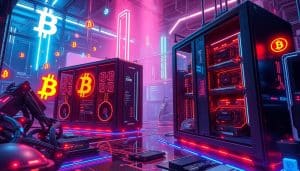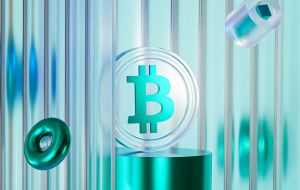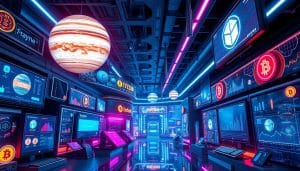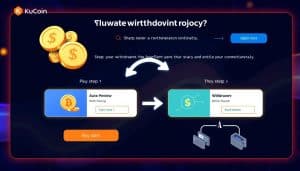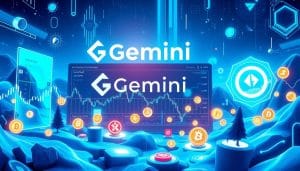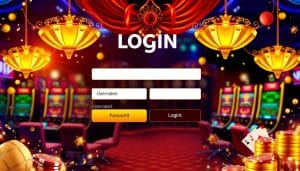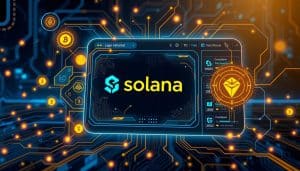Solana, a high-performance blockchain platform known for its scalability, is quickly becoming a popular choice for game developers looking to create blockchain-based games. As a result, there has been a surge in the number of Solana-based games, and the competition is heating up.
The Solana ecosystem is growing rapidly, with new games and developers joining the platform every day.
Understanding Solana and its capabilities is essential for game developers looking to create games on the platform.
Solana is a fast and scalable blockchain that can handle thousands of transactions per second, making it an ideal platform for gaming. With Solana, developers can create games that are fast, secure, and scalable, providing players with a seamless gaming experience.
The rise of crypto games has been significant, and Solana has emerged as a leading platform for creating these games.
The platform’s gaming ecosystem is growing rapidly, with new games and developers joining every day. As the competition heats up, game design and development on Solana are becoming more critical. Developers look to create engaging and immersive games that stand out from the crowd.
Table of Contents
ToggleKey Takeaways
- Solana is a high-performance blockchain platform that is becoming increasingly popular for game developers looking to create blockchain-based games.
- The rise of crypto games has been significant, and Solana has emerged as a leading platform for creating these games.
- As the competition heats up, game design and development on Solana are becoming more critical, as developers look to create engaging and immersive games that stand out from the crowd.
Understanding Solana
If you’re interested in crypto gaming, you’ve likely heard of Solana.
Solana is a high-performance blockchain network that has been designed to offer scalability and low transaction fees. In this section, we’ll take a closer look at Solana and how it works.
The Solana Blockchain
Solana is a blockchain network that was created in 2017 by Anatoly Yakovenko.
It is designed to be fast, scalable, and secure. Solana is a decentralized network, which means that it is not controlled by any central authority. Instead, it is maintained by a network of nodes that work together to validate transactions and maintain the integrity of the network.
Solana’s key feature is its scalability.
It can process up to 65,000 transactions per second, which is significantly faster than other blockchain networks like Ethereum and Bitcoin.
This is achieved through a unique consensus mechanism called Proof-of-History (PoH), which allows Solana to process transactions in parallel.
Proof-of-Stake and Consensus
Solana uses a Proof-of-Stake (PoS) consensus mechanism to validate transactions on the network.
This means that nodes on the network are required to hold a certain amount of Solana’s native cryptocurrency, SOL, in order to participate in the validation process. This helps to prevent bad actors from attempting to attack the network.
In addition to PoS, Solana also uses a unique consensus mechanism called Tower BFT.
This mechanism allows nodes on the network to reach consensus on the state of the network quickly and efficiently. Tower BFT helps to ensure that the network remains secure and that transactions are processed quickly.
The Rise of Crypto Games
If you’re a gamer and a crypto enthusiast, you’ve probably heard of the emergence of blockchain-based games that allow players to earn cryptocurrency while playing. These games, known as play-to-earn games, are quickly gaining popularity in the gaming world.
Play-to-Earn Mechanics
Play-to-earn mechanics allow players to earn cryptocurrency by completing in-game tasks or challenges.
These tasks range from farming crops to battling monsters, and the rewards are paid out in cryptocurrency. The rise of these games has been largely fueled by the increasing interest in blockchain technology and cryptocurrency.
Solana, a blockchain platform known for its fast transaction speeds and low fees, has emerged as a popular choice for play-to-earn games.
Games like Aurory and Star Atlas are built on the Solana blockchain, and offer players the opportunity to earn cryptocurrency while playing.
NFTs and Gaming
Another aspect of blockchain gaming is the use of non-fungible tokens (NFTs).
NFTs are unique digital assets that are stored on the blockchain, and can be bought, sold, and traded. In the gaming world, NFTs can be used to represent in-game items, such as weapons or armor.
NFTs have become a popular feature in blockchain games, as they allow players to truly own their in-game items.
In traditional games, in-game items are owned by the game developer, and can be taken away or deleted at any time. With NFTs, players truly own their items, and can even sell them to other players for real money.
Solana’s Gaming Ecosystem
Solana’s gaming ecosystem is rapidly expanding with key players and projects emerging, creating a decentralized metaverse for gamers to enjoy.
Solana’s ultra-fast speed and low fees make it an ideal platform for game developers to build on.
The infrastructure and development tools available on Solana make it easy for developers to create and deploy games on the blockchain.
Key Players and Projects
Aurory is a blockchain-based game that allows players to create, trade, and sell virtual assets. The game is built on Solana and uses non-fungible tokens (NFTs) to represent unique in-game items.
Star Atlas is another popular game built on Solana that allows players to explore a vast universe and engage in space battles. The game’s economy is entirely on-chain, and players can earn real-world rewards by playing the game.
Arc is a game studio that builds blockchain-based games on Solana. The studio has several games in development, including a racing game and a first-person shooter.
Game developers can also build on Solana using the Solana SDK, which provides a suite of development tools and libraries.
Infrastructure and Development
Solana’s infrastructure and development tools make it easy for game developers to build and deploy games on the blockchain.
The Solana SDK provides a suite of development tools and libraries, including a virtual machine, programming language, and smart contract platform.
The Solana network also supports cross-chain interoperability, allowing developers to integrate their games with other blockchain networks.
Game Design and Development on Solana
Building on Solana
If you are a game developer looking to explore the world of blockchain gaming, Solana is a great place to start.
Solana is a high-performance blockchain that uses a unique proof-of-history consensus algorithm to achieve fast transaction speeds and low fees. Building on Solana allows game developers to leverage the power of blockchain technology to create new and exciting gaming experiences.
Solana’s scalability is one of its key features, allowing developers to build games that can handle large numbers of players and transactions.
This is made possible by Solana’s unique architecture, which uses a system of parallel processing to achieve high throughput and low latency.
Challenges and Solutions
While building on Solana can be a great way to create innovative blockchain games, there are also some challenges to overcome.
One of the main challenges is the complexity of programming for blockchain technology.
To address this challenge, Solana provides a number of tools and resources for developers, including a comprehensive developer documentation, a range of programming libraries and frameworks, and a growing community of developers who are working on Solana projects.
Another challenge that developers may face when building on Solana is the need to balance scalability with security.
This is an important consideration for any blockchain project, but it is particularly relevant for games, which may involve large amounts of valuable assets.
To address this challenge, Solana provides a range of security features, including a robust smart contract system, a secure wallet system, and a range of other security protocols and best practices.
Economics of Play-to-Earn Games
Play-to-earn games have become increasingly popular in recent years, offering players the opportunity to earn real-world value through their in-game activities.
The economic model of these games sets the stage for player empowerment through cryptocurrency rewards. This allows players to leverage their skills and time spent in the game to earn valuable digital assets and generate income.
Tokenomics
Tokenomics is the study of the economics of tokens, which are digital assets that are often used in play-to-earn games.
Tokens can be used for a variety of purposes, including in-game purchases, staking, and earning rewards.
In the case of Solana crypto games, the Aury token is used as the primary currency.
Tokens can be earned through various in-game activities, such as completing quests, winning battles, and acquiring rare items.
These tokens can then be used to purchase items or sold on the open market for real-world value.
The value of these tokens is determined by supply and demand, with more valuable tokens being more difficult to obtain.
Earning and Staking
In play-to-earn games, players can earn tokens by completing various tasks and activities within the game.
These tokens can then be staked to earn additional rewards.
Staking involves locking up tokens in a smart contract for a specified period of time, during which the tokens are used to validate transactions on the blockchain.
Staking rewards are often offered in the form of additional tokens, which can be used to purchase in-game items or sold for real-world value.
The amount of rewards earned through staking depends on the amount of tokens staked and the length of time they are staked for.
In Solana crypto games, staking SOL tokens can also earn token rewards.
SOL is the native token of the Solana blockchain, and staking it can help secure the network while earning rewards in the form of additional SOL tokens.
Competitive Gaming on Solana
Solana’s fast transaction speeds and low fees make it an ideal blockchain for competitive gaming.
With a growing number of games on the platform, players can engage in player versus player (PVP) modes and multiplayer matches to compete for rewards and bragging rights.
Tournaments and Leagues
Solana crypto game competition is heating up, with various tournaments and leagues popping up to showcase the best players and teams.
These events offer a chance for players to test their skills against the best and win prizes, including SOL tokens.
One example of a popular Solana tournament is the “Solana Spring League” hosted by the Solana Foundation.
This league features games such as “Star Atlas” and “Mango Markets” and offers a prize pool of 10,000 SOL tokens.
Other tournaments, such as the “Solana Quake III Arena” tournament, focus on classic games adapted to the Solana blockchain.
Community and Engagement
Solana’s gaming communities are growing rapidly, with players from around the world coming together to share strategies, tips, and tricks.
These communities offer a chance for players to connect with like-minded individuals and form teams for competitive play.
One such community is the “Solana Gaming Discord,” which boasts over 5,000 members.
This community offers a place for players to discuss various games on the platform, organize matches, and share their experiences.
Additionally, Solana’s “GameShift” program is helping to foster new game development on the platform, leading to more engaging and competitive gaming experiences.
Marketing and Promotion Strategies
Marketing and promotion are crucial components for any successful project. In the case of Solana’s crypto gaming competition, effective marketing and promotion strategies can help attract users, build a community, and increase engagement.
Influencer Partnerships
Influencer partnerships can be an effective way to promote Solana’s gaming competition.
By partnering with influencers in the gaming industry, Solana can reach a wider audience and increase its brand awareness.
Influencers can help promote the competition through their social media channels, blogs, and other platforms.
Solana can also sponsor gaming events and conferences to reach a larger audience.
Community Building
Community building is another important aspect of marketing and promotion for Solana’s gaming competition.
Building a strong community can help increase engagement, foster loyalty, and attract new users.
Solana can build a community by creating a dedicated website for the competition, providing daily updates and news, and engaging with users on social media and gaming communities.
Solana can also host gaming tournaments and offer prizes to incentivize participation and engagement.
Emerging Technologies in Gaming
The gaming industry is constantly evolving, and new technologies are emerging to enhance the gaming experience.
Two emerging technologies that have the potential to revolutionize the gaming industry are AI and Machine Learning and Blockchain Innovations.
AI and Machine Learning
AI and Machine Learning are emerging technologies that are changing the way we interact with games.
AI is being used to create more realistic and immersive gaming experiences. For example, AI can be used to create intelligent NPCs that react to the player’s actions in real-time.
Machine Learning is being used to create more personalized gaming experiences. For example, Machine Learning can be used to create in-game content that is tailored to the player’s preferences.
Blockchain Innovations
Blockchain is an emerging technology that has the potential to revolutionize the gaming industry.
Blockchain networks like Solana, Arbitrum, and Polygon are being used to create decentralized gaming platforms that offer a range of benefits. These benefits include:
- Transparency: Blockchain networks are transparent, which means that players can see the game’s code and verify that the game is fair.
- Security: Blockchain networks are secure, which means that players can be confident that their in-game assets are safe.
- Ownership: Blockchain networks allow players to own their in-game assets, which means that they can buy, sell, and trade these assets outside of the game.
- Web3 Gaming: Blockchain networks are being used to create Web3 gaming platforms that offer a range of benefits, including cross-game interoperability, decentralized marketplaces, and fully-on-chain elements.
Solana is one of the leading blockchain networks that is being used to create decentralized gaming platforms.
Solana’s blazing-fast speed and ultra-low fees are built to scale, so the ecosystem grows without sacrificing censorship resistance or security.
Solana’s GameShift is an innovative platform that is lowering the entry barrier for game developers into the blockchain space, providing tools for wallet integration, crypto asset payments, and asset lending functionality.
Legal and Regulatory Considerations
Crypto Regulations
As the crypto industry grows, regulatory bodies are paying more attention to the space. Solana and other cryptocurrencies are not immune to these regulations. It’s important to understand how these regulations affect you as a participant in the Solana crypto game competition.
One of the biggest regulatory concerns for crypto is the lack of clarity around the classification of cryptocurrencies.
The SEC has classified Bitcoin and Ethereum as commodities, but Solana and other cryptocurrencies are still in a gray area. This uncertainty can make it difficult to know what regulations apply to Solana and other cryptocurrencies.
Another regulatory concern is the potential for fraud.
The SEC has cracked down on fraudulent ICOs in the past, and Solana and other cryptocurrencies are not immune to this kind of scrutiny.
It’s important to do your due diligence before investing in any cryptocurrency, and to be aware of the risks involved.
Game Compliance
In addition to crypto regulations, Solana crypto game competition participants must also comply with game-specific regulations.
These regulations can vary depending on the game, but may include rules around cheating, exploitation, and other forms of misconduct.
It’s important to read and understand the rules of the Solana crypto game competition before participating. Violating these rules can result in disqualification and other penalties.
Future of Gaming on Solana
Solana is a blockchain network that is gaining popularity among game developers due to its high speed and low transaction fees. As the technology continues to evolve, the future of gaming on Solana looks promising. Here are some predictions and trends to keep an eye on:
Predictions and Trends
- Play-to-Earn Gaming: Play-to-earn gaming is a trend that has been gaining popularity in the gaming industry. It allows players to earn cryptocurrency by playing games.
Solana’s fast transaction speeds and low fees make it an ideal platform for play-to-earn gaming.
Game developers can easily integrate crypto asset payments and lending functionality into their games, giving players the opportunity to earn cryptocurrency while playing.
- NFTs: Non-fungible tokens (NFTs) are unique digital assets that are stored on a blockchain. They have become increasingly popular in the gaming industry as they allow players to own and trade in-game assets.
Solana’s scalability makes it an ideal platform for NFTs. Game developers can create their own digital assets and features, enabling new on-chain economies.
- Cross-Chain Interoperability: Cross-chain interoperability is the ability of different blockchain networks to communicate and exchange data with each other.
Solana is working on improving cross-chain interoperability, which will allow game developers to create games that can interact with other blockchain networks. This will open up new possibilities for game developers and players.
Expanding the Solana Network
Solana’s network is expanding rapidly, with new projects and partnerships being announced regularly. Here are some ways in which the Solana network is expanding:
- New Projects: Solana is attracting new projects and developers who are building on the platform.
These projects range from gaming to DeFi and are helping to expand the use cases for Solana.
- Partnerships: Solana has formed partnerships with other blockchain networks and companies.
These partnerships are aimed at improving cross-chain interoperability and expanding the use cases for Solana.
- Community: Solana has a strong and growing community of developers and enthusiasts.
This community is helping to drive innovation on the platform and is contributing to the growth of the Solana ecosystem.
Frequently Asked Questions
What are the most popular play-to-earn games on Solana?
Solana has become a hub for play-to-earn games that offer players the opportunity to earn cryptocurrencies while playing.
Some of the most popular games on Solana include Degenerate Ape Academy, Star Atlas, Solana Monkey Business, and SolRazr.
These games have gained a lot of popularity in the Solana community and have attracted a large number of players.
Which Solana-based games have had the highest competition prize pools?
Solana-based games have had some of the highest competition prize pools in the crypto gaming industry.
For example, the Solana Futures Season 2024 hosted by OKX offered a prize pool of up to 100,000 USDT.
Other games such as Solana Monkey Business and SolRazr have also offered high competition prize pools.
How can one participate in Solana crypto game competitions?
Participating in Solana crypto game competitions is easy.
You can visit the official website of the game you want to participate in and follow the instructions provided.
Most games require you to create an account, connect your Solana wallet, and start playing.
You can also join the Solana community on social media platforms such as Twitter and Discord to stay updated on the latest crypto game competitions.
What are the emerging GameFi projects on the Solana blockchain?
The Solana blockchain has become a hub for GameFi projects that offer players the opportunity to earn cryptocurrencies while playing games.
Some of the emerging GameFi projects on the Solana blockchain include Solanium, SolFarm, and SolStarter.
These projects have gained a lot of attention in the Solana community and have attracted a large number of investors.
Can you list some mobile games that are built on Solana?
There are several mobile games that are built on the Solana blockchain.
Some of the most popular mobile games include Star Atlas, Solana Monkey Business, and SolRazr.
These games can be downloaded from the App Store or Google Play Store and offer players the opportunity to earn cryptocurrencies while playing.
What are the key features of the Star Atlas game on Solana?
Star Atlas is a space-themed game that is built on the Solana blockchain. The game offers players the opportunity to explore a vast and immersive universe, engage in battles, and earn cryptocurrencies while playing.
Star Atlas also features a decentralized marketplace where players can buy and sell in-game items. The game has gained a lot of popularity in the Solana community and has attracted a large number of players.
